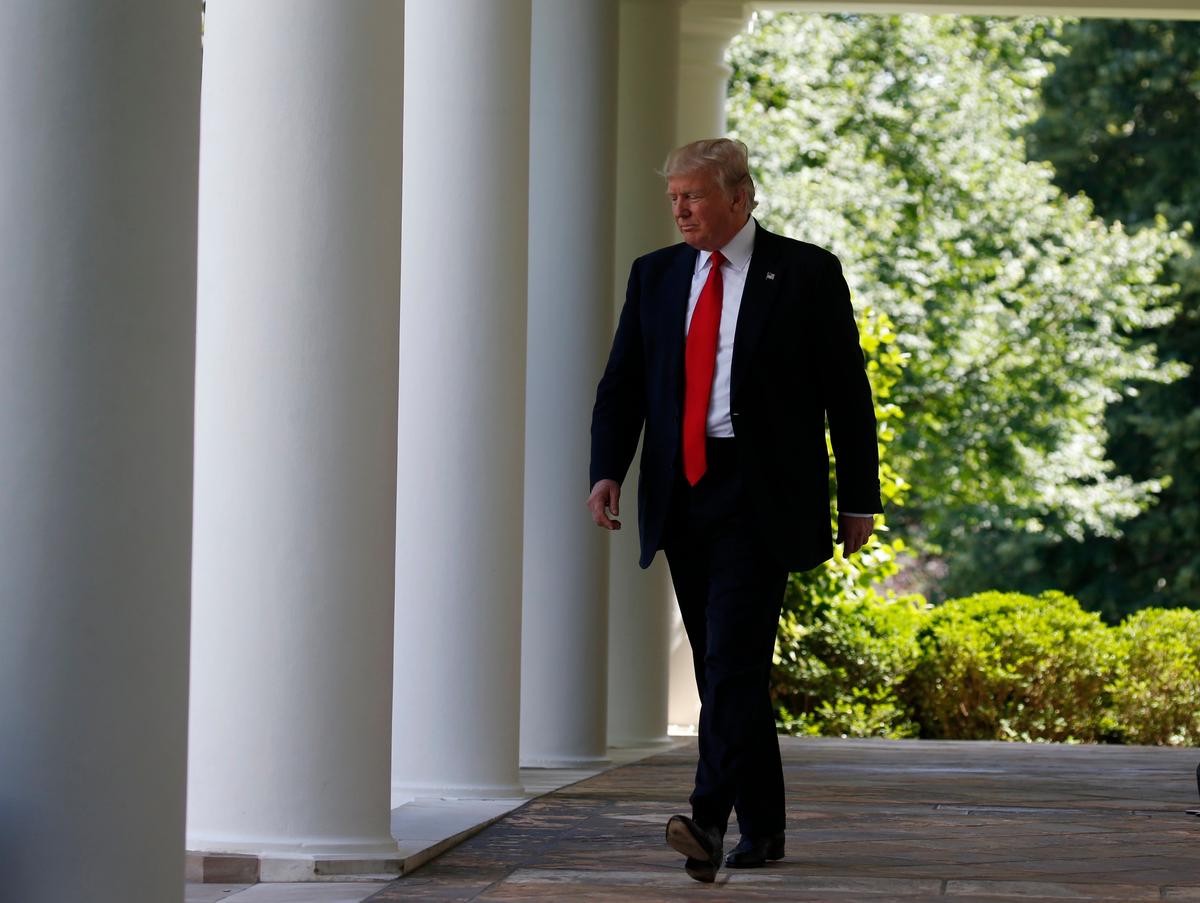WASHINGTON—President Donald Trump on Thursday said he will withdraw the United States from the landmark 2015 global agreement to fight climate change, spurning pleas from U.S. allies and corporate leaders in an action that fulfilled a major campaign pledge.
“We’re getting out,” Trump said at a ceremony in the White House Rose Garden in which he decried the Paris accord’s “draconian” financial and economic burdens. He said American withdrawal “represents a reassertion of American sovereignty.”
Trump said the United States would begin negotiations either to re-enter the Paris accord or to have a new agreement “on terms that are fair to the United States, its businesses, its workers, its people, its taxpayers.”
Trump tapped into the “America First” message he used when he was elected president last year, saying, “I was elected to represent the citizens of Pittsburgh, not Paris.”
“We don’t want other leaders and other countries laughing at us any more. And they won’t be,” Trump added.





